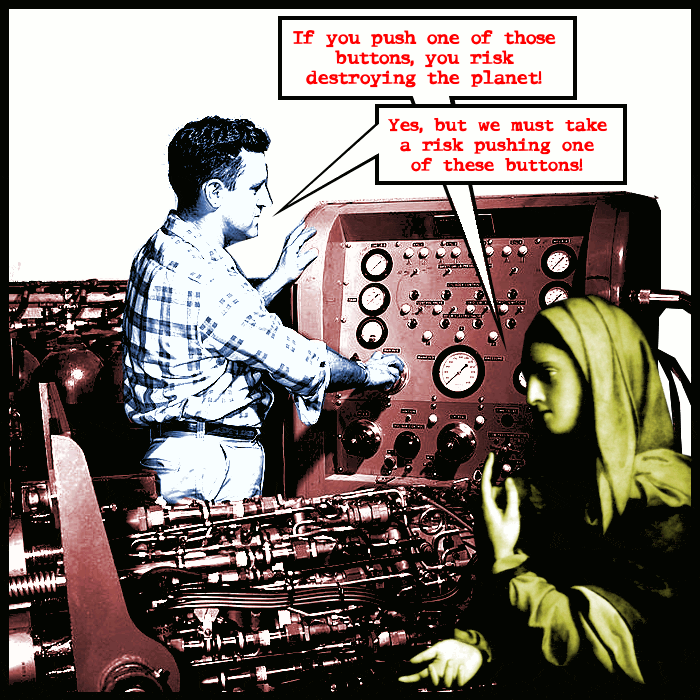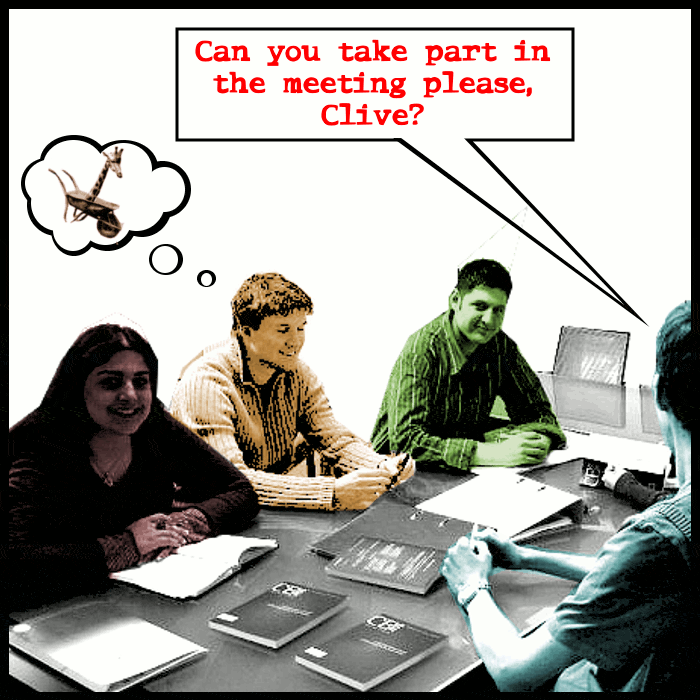 This is a guest post by Gabriel Clark. He is an online English teacher for www.clarkandmiller.com, which provides Skype English lessons with high-quality teachers.
This is a guest post by Gabriel Clark. He is an online English teacher for www.clarkandmiller.com, which provides Skype English lessons with high-quality teachers.
Gabriel is from Brighton in the UK and has taught English in England, Russia, Turkey and Bulgaria. Feel free to send him an email at gabriel@clarkandmiller.com
The word “take” is incredibly common. In fact, it’s the tenth most common verb in English.
What does it mean?
You probably answered “get,” “have” or “buy.”
But we usually don’t use “take” to mean “get” or “have” or “buy.”
So when do we use it?
Like the words “have,” “do” and “make”, we use “take” mostly in phrases. That means “take” doesn’t usually work alone, but with other words to create completely new meanings.
Here are the most common modern uses of “take” and what they mean:
Take a look at
This means simply “look.” What’s the difference? Well, “take a look” is more friendly, casual and social. It also sounds more natural (so I would strongly recommend that you use it!).
Examples:
- Thanks for sending me that article on vegetables. I’ll take a look at it later.
- Take a look at that giraffe! What on earth is it doing?

Take place
This phrase actually just means “happen,” but for organized events.
Examples:
- The last Olympics took place in Brazil.
- Our next performance will take place next month on the 25th.
Take advantage of
This can have both a positive and a negative meaning, but in both it simply means to “take an opportunity.”
When it’s positive, it’s taking an opportunity, usually financial, that benefits everyone.
When it’s negative, it means to take an opportunity, but by using another person.
Positive examples:
- You should take advantage of this 25% discount.
- At the party, she took advantage of the chance to meet new people.
Negative examples:
- He’s always taking advantage of his mother when he doesn’t have any money. She always says yes.
- The insurance company totally took advantage of us. Now we have nothing!
Take a risk
This is very similar to the verb “risk.” The meaning is the same, but there’s a big difference in how we use it. Let’s look at two examples:
Examples:

So as you can see we “risk” causing a negative result (like destroying the planet), but we “take a risk” doing the risky action (like pushing one of the buttons).
Take over
Sometimes this can just mean “take control of.”
Examples:
- It seems to me that Nestle is just taking over all the other chocolate companies.
- When I retire, Lara’s going to take over my responsibilities.
But when we use it with people, we add a little extra meaning. We want to say that they’re behaving in a bossy or controlling way.
Examples:
- I don’t like having meetings with Simeon. He just takes over the whole meeting and no one gets the chance to speak.
- This job has completely taken over my life. I should quit.
Take part in
This means the same as “participate in” — to join an organisation or a project and add something to it.
Examples:
- I’d love to take part in a theatre production, but I’m just too shy.
- Can you take part in the meeting please, Clive?

Take turns doing something
Let’s talk about chess.
What would it be like if both players just made their move when they wanted to, without waiting for the other player?
Madness, right?
That’s why they need to take turns.
To take turns means for each person to wait for the person in front of them or with them to do something before they can do something.
After “take turns” you can use either “to+verb” or “-ing” — your choice!
Examples:
- My husband and I take turns to cook.
- We took turns looking through the telescope.
Take something into account
This means to remember an important point or fact that you’re going to need when you do something.
Think about being a pilot. This is probably an incredibly difficult job. I’m sure you don’t just fly the plane — you have to think about all sorts of different things like the wind direction, the wind speed, the weight of the airplane, the rotation of the earth, etc. These are all things that a pilot has to take into account.
Examples:
- Remember to take into account the taxes you’ll need to pay when looking at your salary.
- When you take into account that the country has seen five major wars in recent years, it’s looking great.
was/were taken into custody (usually passive)
What does it mean?
Notice that this one is usually passive (like most crime vocabulary).
This is very similar to “arrest.” What’s the difference?
When the police arrest someone, it’s a short action — about the amount of time it takes to say “you’re under arrest.”
After they arrest someone, they “take him/her into custody.” It has a similar meaning to “hold.”
“The suspect was held.” = “The suspect was taken into custody.”
Examples:
- Three female students were taken into custody last night after vandalism of the town fountain.
- He had no idea of why he was taken into custody. It must’ve been the giraffe incident.
Take a holiday / vacation / a sabbatical / time off
When we talk about free time and not working, we use “take.” Remember, free time is something we need to take, because no one will just give it to us!
Examples:
- I’m going to take two months off this summer to go skydiving in Peru.
- You really look like you should take a holiday.
Take pictures / photos of
This is very common. It means use your camera! I’m sure you already know this, so let’s look briefly at another common use of this phrase:
- you take a picture/photo = you are using the camera
- have your picture/photo taken = someone else is taking a picture of you

Take on something / someone
This means “to face” or “to deal with.”
If you have something difficult to do, you can either ignore it (not a good idea), or take it on. This has a feeling of strength and determination.
This is also often used in sports. When a team or a player has beaten one opponent, they have to move on to the next one and “take them on.”
Examples:
- The protesters were confident and ready to take on the government.
- After beating Italy, the Spanish team were ready to take on Brazil in the final.
There is one more very common use of “take,” but it can be used in three different ways. I recommend looking at these carefully and making sure the difference between them is clear in your mind.
Take your time
Take the time to do something
Take time doing something
Let’s look at these one by one:
Take your time
If you want to tell someone that they don’t need to do something quickly, that they can relax and do it as quickly or slowly as they want, then this is the phrase you need. It’s a way of making people feel relaxed and that they don’t have to rush.
Examples:
- You don’t need to finish that until next month. You can take your time with it.
- Please take your time in the art gallery — there’s a lot of beautiful stuff in there and we’ve got all day.
Take the time to do something
This means to put aside time to do something in particular.
Examples:
- I’ve got a friend who likes writing short stories. He asks me to read his stories before he puts them online. I love doing this and it’s nice to know I can help him get better. So I take the time to read his stories and give him suggestions to improve his stories. My time is valuable, but my friendship is more valuable — so I take the time to do this.
Take time doing something
This simply describes how long something takes. Instead of the word “time,” we usually use a time phrase (two hours, for example).
Examples:
- He took four months to write that book. And it’s amazing!
- Ella took a lot of time planning that holiday.
And finally, let’s not forget…
Take it away!
This phrase is generally used in just one situation. It’s when we’re introducing a performance.
The presenter of a TV show might say it while introducing a band.
Or the host of a theatre may say it before the performance starts.
It has a feeling of “show business” and fun.
So why Sam? There’s a long story behind that. What is it? To find out, you need to watch the classic Humphrey Bogart film, Casablanca (or just google it)!
Check out more fun illustrated lessons on the Clark and Miller blog!









